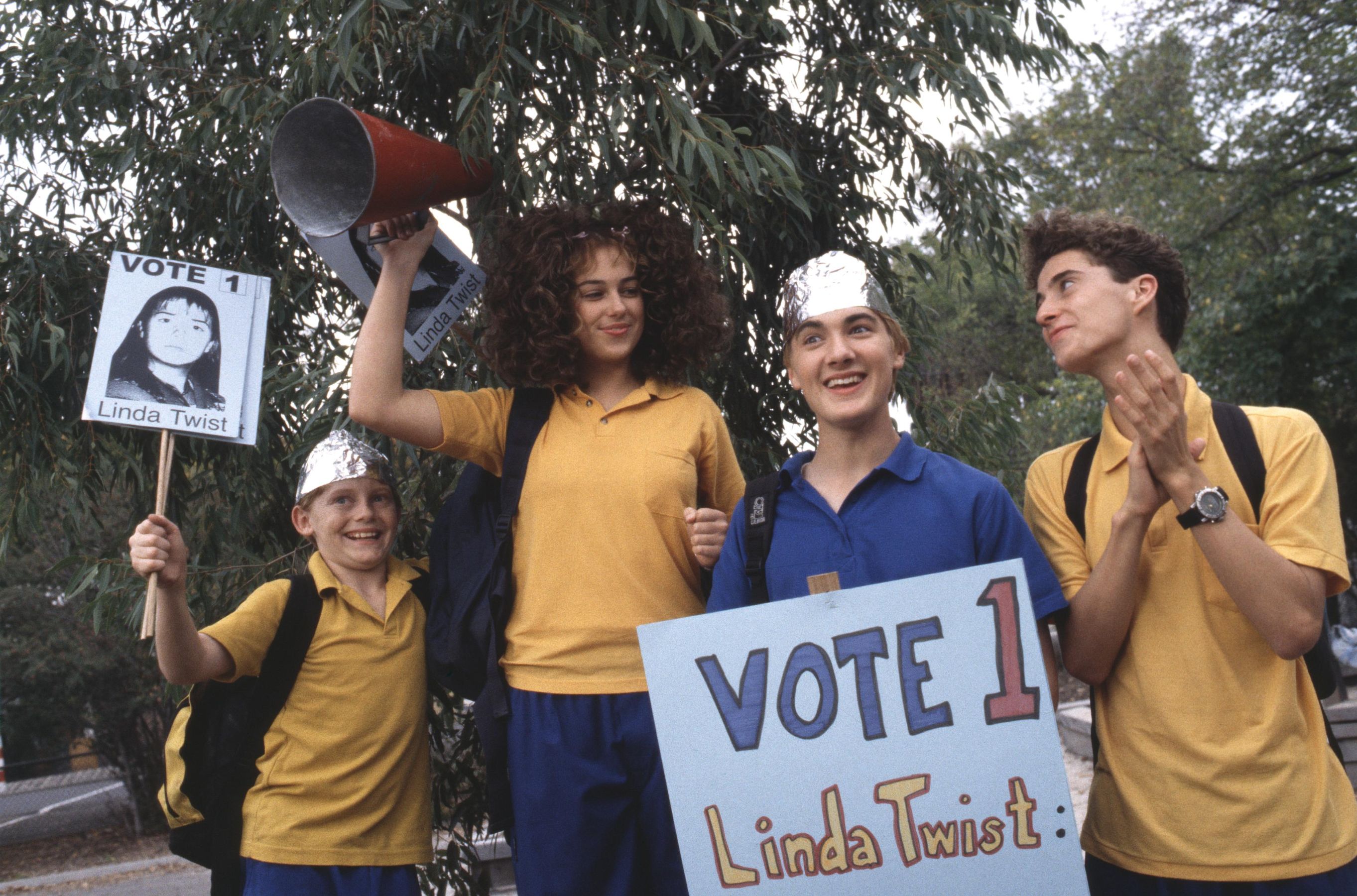
About the Civics and Citizenship Clip Collection

This clip collection is designed to help students understand and practice active citizenship, focusing on concepts of democracy, rights and responsibilities, and community participation.
Developing these skills is crucial for students’ personal and social development, supporting them to engage thoughtfully with others and contribute positively to their communities.
Key features:
-
This clip collection introduces students to real-life civic contexts, such as making group decisions, understanding rules and laws, participating in community initiatives, and recognising how different perspectives shape democratic life.
-
The activities encourage reflection and discussion about fairness, justice, and responsibility, helping students to connect their everyday experiences with broader civic ideas.
-
Each section includes three short clips from Australian television programs that highlight key civics and citizenship themes, followed by corresponding activities.
-
Teachers have the flexibility to select clips and activities that best suit their students’ learning needs and context.
-
For older students, the resource addresses more complex issues such as media influence, representation, and civic participation in digital spaces. Australian Curriculum Links are outlined at the conclusion of each lesson.
-
By incorporating these lessons into their teaching, educators can help students develop the knowledge, skills and values needed to become active, informed and responsible citizens, both now and in the future.
-
Activities are designed to integrate with other curriculum areas such as English and Humanities, enabling cross-curricular learning opportunities that strengthen students’ civic understanding.
When using this resource, we encourage teachers to:
-
Set positive ground rules: Establish respectful guidelines for discussions and activities, ensuring students feel safe to share their thoughts and opinions. Encourage consideration of multiple perspectives, and promote empathy, fairness, and respect for democratic processes.
-
Foster open discussions: Create opportunities for students to explore civic issues, express opinions, and debate respectfully. Encourage students to reflect on their own role as citizens and the impact of their choices on others.
-
Ensure safety and confidence: Build a classroom culture where students feel comfortable sharing views, asking questions, and engaging with differing opinions. Reinforce the importance of inclusive participation and respectful dialogue.
-
Outline support available: Highlight school and community services, such as student councils, peer support programs, and community groups, as avenues for students to practice active citizenship and seek guidance in navigating civic challenges.
-
Connect to students’ lives: Encourage students to link what they learn in the classroom to their own experiences, families, and communities, helping them see how civic knowledge and skills can be applied in everyday life.
Other Resources:
New South Wales (NSW)
-
NSW Parliament – Education Portal – Excursions, digital programs, and resources on parliament and law-making.
-
NSW Electoral Commission – Democracy Resources – Student voting kits, election simulations, and democracy education.
Victoria (VIC)
-
Parliament of Victoria – Education Resources – Lesson plans, role-plays, and excursions.
-
Victorian Electoral Commission – Passport to Democracy – Classroom program connecting students with real issues and decision-making.
-
Human Rights Commission (Vic) – Rights education resources for schools.
Queensland (QLD)
-
Parliament House Queensland – Education Services – School tours, virtual excursions, and teaching resources.
-
Electoral Commission Queensland (ECQ) – Educational programs about democracy and elections.
Western Australia (WA)
-
Parliament of Western Australia – Education Office – Lesson plans, role-plays, and teacher resources.
-
WA Electoral Commission – Electoral Education Centre – Programs on voting and democracy for schools.
South Australia (SA)
-
Parliament of South Australia – Education Services – Tours, school visits, and classroom resources.
-
Electoral Commission SA – Education Resources – Democracy education and election programs.
Tasmania (TAS)
-
Parliament of Tasmania – Education Office – Tours, teacher resources, and role-play programs.
-
Tasmanian Electoral Commission – Education Programs – Voting and democracy education tailored for schools.
Australian Capital Territory (ACT)
-
ACT Legislative Assembly – Education Office – Tours, lesson resources, and outreach programs.
-
Elections ACT – Democracy Resources – Voting and electoral process education for students.
Northern Territory (NT)
-
Parliament House Darwin – Education Services – Tours, classroom resources, and community education.
-
Northern Territory Electoral Commission (NTEC) – School programs about voting and democracy.
General:
-
Australian Curriculum, Assessment and Reporting Authority (ACARA) – Civics and Citizenship Curriculum (Years 3–10).
-
Parliament of Australia – Parliamentary Education Office (PEO) – Classroom resources, virtual tours, and interactive role-plays.
-
Electoral Education Centre (Australian Electoral Commission, AEC) – Resources on democracy, elections, and voting, including “Your Vote, Your Voice.”
-
Museum of Australian Democracy (MoAD) – at Old Parliament House – Lesson plans, digital excursions, and resources about democracy, rights, and active citizenship.
-
ABC Education – Civics and Citizenship – Videos, activities, and classroom resources.
-
Australian Human Rights Commission (AHRC) – Teaching resources on human rights, discrimination, and inclusion.
Writer Acknowledgment
The Civics and Citizenship: Curated Clip Collection was written by Keith Heggart.
Dr Keith Heggart is a Senior Lecturer in the Faculty of Design and Society at the University of Technology Sydney and Director of the Centre for Research on Education in a Digital Society. A former school teacher, Keith is an experienced researcher and writer in civics and citizenship education, media literacy, and digital learning design. He has published widely in these fields, contributed to national policy inquiries, and is the writer of the Civics and Citizenship: Curated Clip Collection, which supports teachers to use Australian screen stories to spark meaningful classroom conversations.